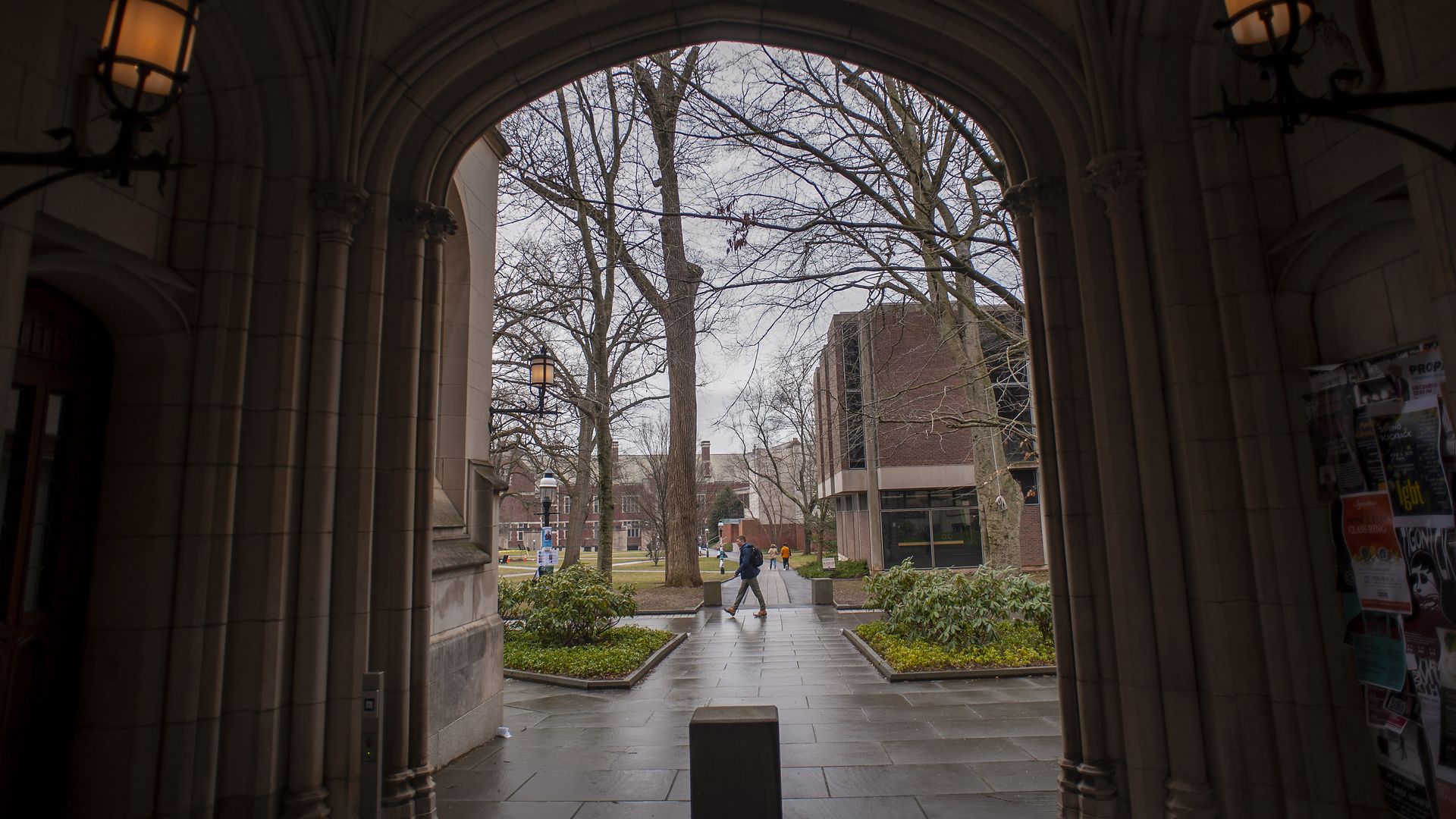Sep 8, 2022 - Economy
Princeton to cover all student costs for most families earning up to $100,000
Add Axios as your preferred source to
see more of our stories on Google.

The Princeton University campus as seen on Feb. 4, 2020, in Princeton, N.J. Photo: William Thomas Cain via Getty Images
